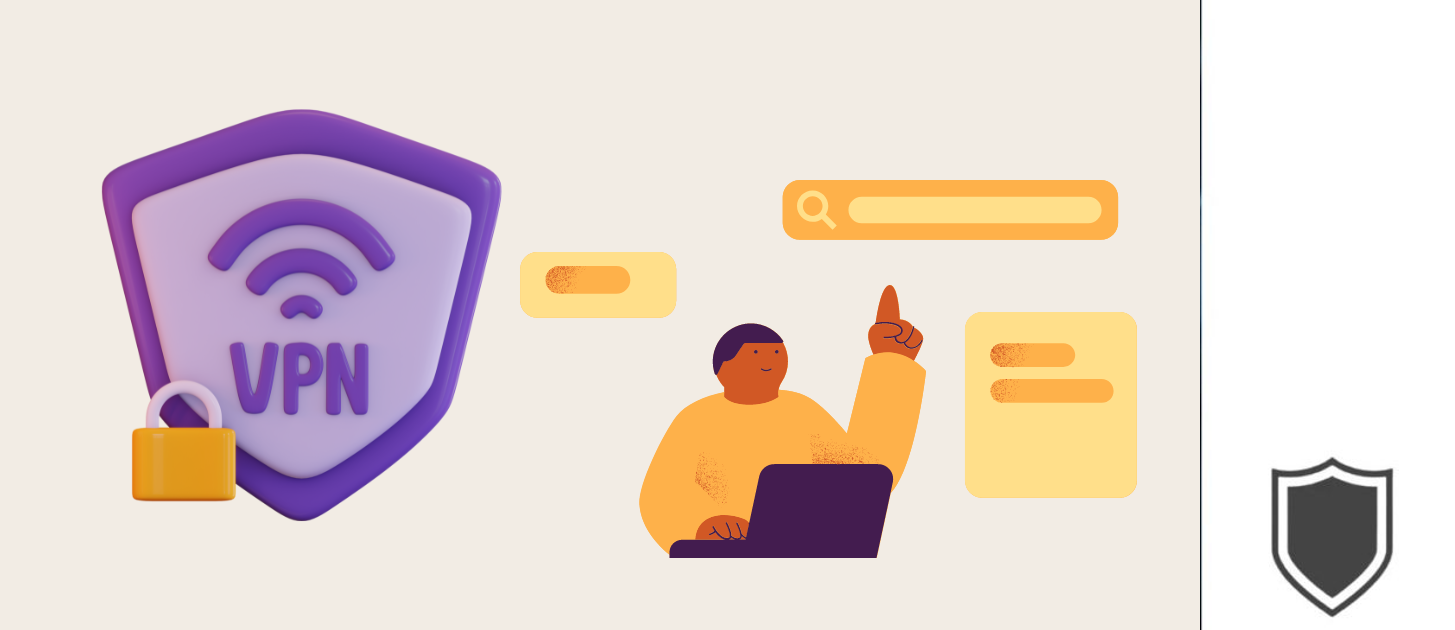If you’re searching for a reliable and secure VPN option, considering an open-source VPN could be beneficial. Unlike proprietary VPNs, open-source VPNs are developed in a transparent way, with their code available for inspection and auditing by anyone who wishes to do so. This level of transparency guarantees that there are no concealed vulnerabilities or backdoors, making open-source VPNs a popular choice for those who value their privacy and wish to protect their data from unwarranted access.
Our favorite open source VPN is OpenVPN: OpenVPN is one of the oldest and most well-established open source VPNs. It is known for its reliability and security.
Open-source VPNs offer a range of benefits over proprietary VPNs. For one, they are often more secure and privacy-focused, as they are developed by a community of users who are dedicated to protecting online privacy. Additionally, open-source VPNs are typically more customizable and offer more advanced features than proprietary VPNs. Some of the best open-source VPNs even offer advanced features like multi-hop VPN connections, which can help to further protect your privacy and security online.
Table of Contents
Key Takeaways
- Open-source VPNs are developed transparently, making them a popular choice for privacy-conscious users.
- Open-source VPNs are often more secure and privacy-focused than proprietary VPNs.
- Some of the best open-source VPNs offer advanced features like multi-hop VPN connections, which can help to further protect your privacy and security online.
Understanding VPNs
A Virtual Private Network (VPN) is a service that creates a secure and encrypted connection between your device and the internet. When you use a VPN, your internet traffic is routed through an encrypted tunnel to a remote server, which then accesses the internet on your behalf. This means that your online activity is protected from prying eyes and your IP address is masked, providing an extra layer of security and privacy.
VPNs use encryption to scramble your data, making it unreadable to anyone who intercepts it. There are various encryption protocols that VPNs can use, such as IPsec, OpenVPN, and WireGuard. These protocols determine how the encryption is applied and how secure the connection is.
When choosing a VPN, it’s important to consider the security features it offers. Look for features such as a kill switch, which will automatically disconnect you from the internet if the VPN connection drops, preventing your data from being exposed. Other security features to look for include DNS leak protection, which prevents your DNS requests from being leaked outside of the VPN tunnel, and split tunneling, which allows you to choose which apps or websites use the VPN and which do not.
Open-source VPNs are becoming increasingly popular as they allow users to inspect the code and ensure that there are no backdoors or vulnerabilities that could compromise their security. OpenVPN is one of the most popular open-source VPNs available, offering a range of features and security options for both personal and enterprise use.

Why Open Source VPNs
When it comes to choosing a VPN, you might be wondering why you should consider an open-source VPN. Open-source VPNs offer several advantages over proprietary VPNs that make them a great option for those looking for a reliable and secure VPN solution.
Transparency
One of the main advantages of open-source VPNs is transparency. With open-source VPNs, the source code is available for anyone to review. This level of transparency allows users to see exactly what the VPN is doing with their data, which can help to build trust and confidence in the VPN’s security and privacy features.
Community
Another advantage of open-source VPNs is the community. Open-source projects are often developed and maintained by a community of developers and users who are passionate about the project. This community can provide valuable support and feedback, as well as contribute to the ongoing development and improvement of the VPN.
Security
Open-source VPNs are often considered more secure than proprietary VPNs because of their transparency and community-driven development. With open-source VPNs, any vulnerabilities or security issues are quickly identified and addressed by the community, which can help to keep the VPN secure and up-to-date.
Flexibility
Open-source VPNs are often more flexible than proprietary VPNs because they can be customized and modified to suit the specific needs of the user. With access to the source code, users can make modifications and add new features to the VPN, which can help to improve its functionality and usability.
Overall, open-source VPNs offer several advantages over proprietary VPNs, including transparency, community-driven development, security, and flexibility. If you’re looking for a reliable and secure VPN solution, an open-source VPN might be the right choice for you.
Best Open Source VPNs
When it comes to VPNs, you want to make sure you’re using a reliable and secure service. Open source VPNs can provide that extra layer of security and customization that you might be looking for. Here are some of the best open source VPNs available:
1. OpenVPN
OpenVPN is a popular open source VPN that provides both security and flexibility. It’s a full-fledged VPN solution that’s available for both enterprises and regular users. OpenVPN is known for its strong encryption and compatibility with a wide range of devices and operating systems. It’s also highly customizable and can be configured to suit your specific needs.
2. SoftEther
SoftEther is another open source VPN that’s worth considering. It’s a multi-protocol VPN software that supports SSL-VPN, L2TP/IPsec, OpenVPN, and more. SoftEther is known for its high performance and stability, making it a great choice for businesses and individuals alike.
3. Freelan
Freelan is a free, open source VPN software that’s designed to create a LAN over the Internet. It’s available for Windows, Linux, and Mac OSX, and is written in robust, low-level C and C++ code. Freelan is highly customizable and can be configured to suit your specific needs.

Installing OpenVPN
Let’s walk through how to actually install OpenVPN.
To install OpenVPN on Windows, follow these steps:
- Download the OpenVPN installer from the OpenVPN website.
- Run the installer and follow the on-screen instructions.
- Once OpenVPN is installed, you will need to download a configuration file from your VPN service provider.
- To connect to the VPN, double-click on the configuration file and follow the on-screen instructions.
To install OpenVPN on macOS, follow these steps:
- Download the OpenVPN installer from the OpenVPN website.
- Run the installer and follow the on-screen instructions.
- Once OpenVPN is installed, you will need to download a configuration file from your VPN service provider.
- To connect to the VPN, open the OpenVPN app and click on the “Connect” button.
- Select the configuration file from your VPN service provider and click on the “OK” button.
To install OpenVPN on Linux, follow these steps:
- Open a terminal window.
- Update your package manager:
sudo apt update
- Install OpenVPN:
sudo apt install openvpn
- Download a configuration file from your VPN service provider.
- To connect to the VPN, open a terminal window and navigate to the directory where the configuration file is located.
- Run the following command:
sudo openvpn config.ovpn
Replace config.ovpn with the name of the configuration file.
Once OpenVPN is installed and configured, you can connect to the VPN by double-clicking on the configuration file or by running the OpenVPN app.
Features to Look for in a VPN
| Feature | Description |
|---|---|
| Kill Switch | Automatically disconnects your device from the internet if the VPN connection fails. |
| Platforms | Make sure the VPN supports the devices and operating systems you need to use it on. |
| Network | Look for a VPN with a large, global network of servers and a fast and reliable network. |
| Security | Look for a VPN that uses strong encryption and offers additional security features. |
| Servers | Look for a VPN with a large number of servers to give you more options for server locations and better performance. |
| Logging | Make sure the VPN has a strict no-logging policy. |
| Bandwidth | Check the bandwidth limits of the VPN. Some VPNs have limits on the amount of data you can use per month, which can be a problem if you plan to use the VPN for streaming or downloading large files. |
| Simultaneous Connections | Check how many devices you can connect to the VPN at the same time. Some VPNs limit the number of simultaneous connections, which can be a problem if you have multiple devices that you want to protect. |
| Clients | Check the user interface of the VPN client. It should be easy to use and navigate, with clear options for connecting and disconnecting from the VPN. |
| DNS Leak Protection | Ensures that your DNS requests are routed through the VPN, preventing your ISP from tracking your online activity. |
VPN Performance and Speed
When it comes to VPNs, performance and speed are crucial factors to consider. A slow VPN can be frustrating and can negatively impact your online experience. Therefore, it’s important to choose an open-source VPN that offers fast connection speeds and reliable performance.
One of the most important factors that affect VPN performance is the connection speed. The faster the connection speed, the better the VPN performance. Open-source VPNs like OpenVPN and WireGuard are known for their fast connection speeds, making them ideal for users who require high-speed internet.
Testing is also an important factor to consider when it comes to VPN performance. It’s important to test the VPN’s speed and performance before making a final decision. Open-source VPNs like OpenVPN and WireGuard have been extensively tested and are known for their reliable performance. Additionally, many open-source VPNs offer free trials or money-back guarantees, allowing users to test the VPN’s performance before committing to a subscription.
Security and Privacy
When it comes to choosing a VPN, security and privacy should be your top priority. Open-source VPNs are known for their high level of security and privacy, making them a popular choice among users.
Encryption is an essential security feature that you should look for in a VPN. Open-source VPNs use strong encryption protocols such as OpenVPN and IPsec to protect your data from prying eyes. These protocols create a secure tunnel between your device and the VPN server, preventing anyone from intercepting your data.
Logging is another important consideration when it comes to security and privacy. Open-source VPNs do not keep any logs of your online activity, ensuring that your digital privacy is protected.
DNS leak protection is also a crucial feature that you should look for in a VPN. This feature ensures that your DNS requests are not leaked to your ISP or any other third-party. Open-source VPNs offer robust DNS leak protection, ensuring that your online privacy is not compromised.
In addition to these security features, it is essential to read the VPN provider’s privacy policy to ensure that they respect your digital privacy. Open-source VPNs are transparent about their privacy policies, making it easy for you to understand how they handle your data.
Overall, open-source VPNs offer a high level of security and privacy, making them an excellent choice for anyone looking to protect their online privacy.
VPN for Streaming and Torrenting
When it comes to streaming and torrenting, it’s essential to have a VPN that can handle the task. A good VPN can unblock streaming services and provide fast and secure torrenting capabilities. Here are some factors to consider when choosing a VPN for streaming and torrenting:
Streaming
If you’re looking to stream content from services like Netflix, Amazon Prime, or BBC iPlayer, you’ll need a VPN that can bypass geo-restrictions. Look for a VPN that has servers in the countries where the content is available. Also, make sure the VPN has a good reputation for unblocking streaming services. Some VPNs may not work with certain services, so it’s essential to do your research before choosing a VPN.
Torrenting
Torrenting can be risky, so it’s crucial to use a VPN that provides secure and fast torrenting capabilities. Look for a VPN that has a strict no-logs policy and uses strong encryption to protect your data. Also, make sure the VPN has servers in countries where torrenting is legal. Some VPNs may have restrictions on torrenting or limit your bandwidth, so it’s important to choose a VPN that can handle your needs.
Location
The location of the VPN provider is also an important factor to consider. Some countries have strict laws regarding streaming and torrenting, so it’s crucial to choose a VPN that operates in a country with favorable laws. Additionally, if you’re looking to access content from a specific country, make sure the VPN has servers in that location.
Overall, when choosing a VPN for streaming and torrenting, it’s essential to consider factors such as unblocking capabilities, security, and location. By doing your research and choosing a reputable VPN provider, you can enjoy fast and secure streaming and torrenting capabilities.
Pricing and Money-Back Guarantee
| Feature | PIA | Mullvad | ProtonVPN |
|---|---|---|---|
| Money-back guarantee | 30 days | 30 days | 30 days |
| Free trial | 7 days | No | 7 days |
| Monthly price | $11.95 | €5.00 | $5.00 |
| Annual price | $3.33 per month | €5.00 per month | $4.99 per month |
| Two-year price | $2.69 per month | €5.00 per month | $3.99 per month |
Conclusion
In conclusion, choosing the right open-source VPN for your needs can be a daunting task. However, by considering the factors we’ve outlined in this article, you can make an informed decision that will keep your online activity secure and private.
Remember to consider factors such as speed, security, ease of use, and compatibility with your devices and operating systems. OpenVPN is a popular choice that offers both a free and paid version, while WireGuard is a newer protocol that is gaining popularity due to its speed and security features.
Frequently Asked Questions
What are some popular open source VPN options available for Linux-based VPN servers?
OpenVPN is one of the most popular open source VPN options available for Linux-based VPN servers. It is widely used and trusted by many organizations and individuals alike.
Is SoftEther the only alternative to OpenVPN?
No, SoftEther is not the only alternative to OpenVPN. There are other open source VPN solutions available, such as WireGuard, StrongSwan, and OpenConnect.
What are some reliable site-to-site VPN open source solutions?
OpenVPN is a reliable open source site-to-site VPN solution that is widely used and trusted. Other options include StrongSwan and ZeroTier.
How does OpenVPN compare to other open source VPNs?
OpenVPN is often considered the most mature and reliable open source VPN solution. It has been widely adopted and has a large community of users and contributors. However, other options such as WireGuard and SoftEther are also gaining popularity and may be worth considering depending on your specific needs.
What are the benefits of using an open source VPN client?
Using an open source VPN client provides several benefits, including increased transparency and security. Open source software is often more secure because the code is open for review and potential vulnerabilities can be identified and fixed by the community.
Can you recommend any trusted open source VPN servers or clients for personal use?
Some trusted open source VPN servers and clients for personal use include OpenVPN, WireGuard, and SoftEther. It’s important to choose a solution that meets your specific needs and has a strong community of users and contributors to ensure reliability and security.









